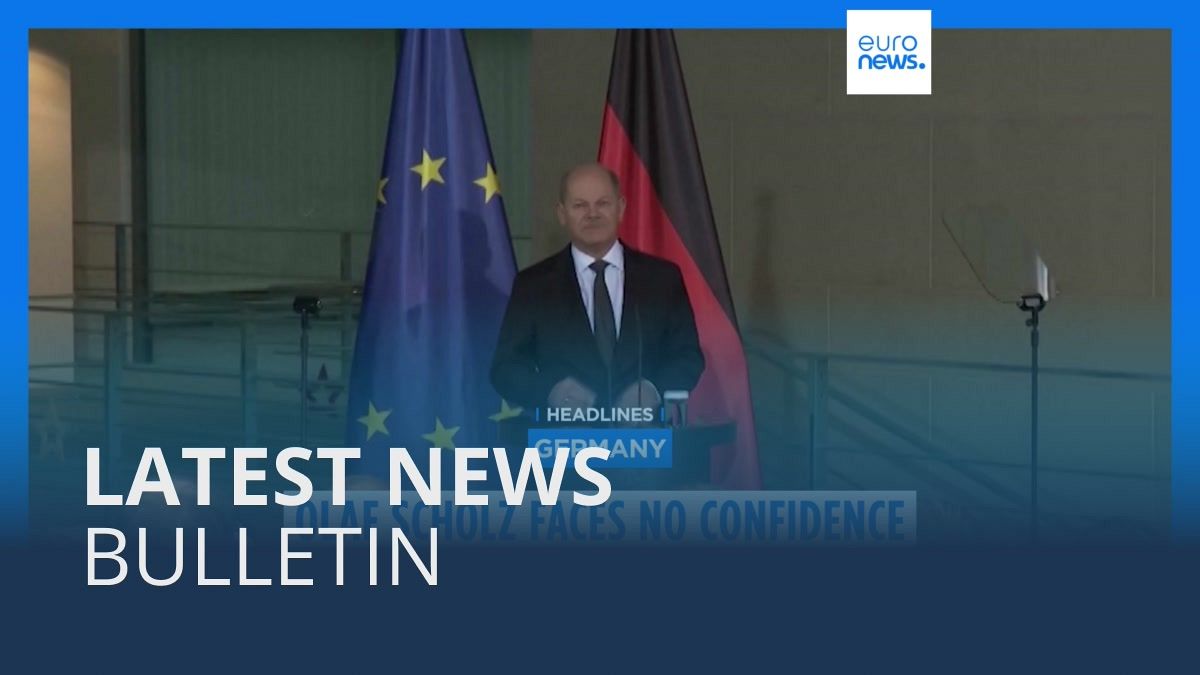Ireland’s peculiar election fail
Staid campaign limps toward election day as party leaders struggle to drum up enthusiasm for a vote with no clear front-runner.
DUBLIN — Does anybody really want to win Ireland’s election?
The strange answer, with the nation poised to go to the polls Friday, seems to be an exhausted no.
Tuesday night’s only face-to-face TV debate between the three contenders to become taoiseach — the incumbent prime minister, Simon Harris of center-ground Fine Gael; Foreign Minister Micheál Martin of fellow centrists Fianna Fáil; and left-wing Sinn Féin opposition leader Mary Lou McDonald — featured three rivals who seemed bored by their own stale arguments.
Each sounded wary of attacking the others too harshly over center-ground policies that differ more in number-crunching detail than in any ideological divide.
If any spin doctor had scripted a surprise new line to energize the electorate or deliver a knockout blow against a dangerous opponent, it went unsaid.
And that failure goes to the heart of this peculiarly Irish race: None of the three contenders leads a party that can win this election outright — because none is even running enough candidates.
To become taoiseach, Irish for “chief,” each would almost certainly need one of the other two to attain a parliamentary majority as a coalition. At least two of these campaign opponents will need to become government buddies.
In particular, to have any shot at becoming Ireland’s first female taoiseach, McDonald needs her Irish republican party to overtake both Fianna Fáil and Fine Gael for the first time in seats won. That would give Sinn Féin first dibs in trying to negotiate a wider coalition.
She only narrowly failed to reach that milestone in 2020, when her party surged late in the polls on the back of antiestablishment sentiment against Ireland’s two perpetual parties of government. Between them, Fianna Fáil and Fine Gael have produced every prime minister since Ireland’s independence from Britain in 1922.
Back in 2020, featuring a more boisterous campaign with multiple sharp-edged TV debates, McDonald had to petition broadcasters even to be allowed on to the same “leaders’ debate” stage as Fianna Fáil’s Martin and Harris’ predecessor as Fine Gael leader, Leo Varadkar. When she won a last-minute reprieve to join them in the final RTÉ debate, McDonald dealt real damage and clearly won the night by portraying her opponents as Tweedledee and Tweedledum, two sides of the same perpetual-government coin. It was a line she’d been saying since succeeding Gerry Adams as Sinn Féin leader in 2018.
When she slowly circled back to that quip Tuesday night, it had lost all its power through years of unimaginative repetition.
“The core principle that I hear from Fianna Fáil and Fine Gael is that they believe that they, and only they, should be in government,” began McDonald, who held the center podium, with Harris on her left, Martin on her right.
“After a century of Tweedledum and Tweedledee,” McDonald said — only to be sideswiped by a suddenly confident, smirking Harris, who had spent much of the evening defending his own campaign-trail stumbles.
“You’re rolling out the five-year-old lines now. Come on, you can do better than that! You’ve had five years to come up with a new line, Mary, five years,” Harris interjected.
To no one’s surprise, Martin and Harris almost entirely avoided jabbing each other. The odds heavily favor a return of the Fine Gael-Fianna Fáil coalition that has governed Ireland through coronavirus lockdowns, a Ukraine war-fueled inflation spike and a homegrown housing crisis.
Harris, the 38-year-old elevated to the top job in April after Varadkar’s surprise resignation, could lose the taoiseach’s chair soon to the 64-year-old Martin. The Fianna Fáil leader last held the post from mid-2020 to the end of 2022 as part of the outgoing coalition’s novel power-sharing agreement.
Harris’ gaffe-prone campaign has cost Fine Gael its early poll lead. It now narrowly trails Sinn Féin and Fianna Fáil, but all three are essentially bunched close to the 20 percent support mark.
None of the parties is fielding enough candidates to win a parliamentary majority alone. Reflecting Ireland’s fast-growing population, the next parliament will grow to a 174-member chamber, making 88 seats the new minimum necessary for a governing majority. Fianna Fáil is running 82 candidates, Fine Gael 80 and Sinn Féin 71.
Given that Tuesday night’s lackluster fight did little to move the dial, polls and bookmakers indicate it’s unlikely that any of the three top parties will top even 50 seats. This makes a return of the Fine Gael-Fianna Fáil duo, propped up by another small party or independents, the most expected outcome.
It was telling that Martin, the mild-mannered great survivor of Irish politics, grew exasperated only once during Tuesday night’s nearly two-hour debate — to shoot down the idea he might cut a postelection deal with Mary Lou, rather than his current beau, Simon, should Sinn Féin fare better than the slumping Fine Gael.
“Just because you get 20 percent of the vote doesn’t entitle you to be in government. It never did,” said Martin, who then was asked if he admired anything about McDonald as a leader.
“I’m not getting into kinda silly stuff now,” he shot back. “This is about forming a government.”
What's Your Reaction?


















































